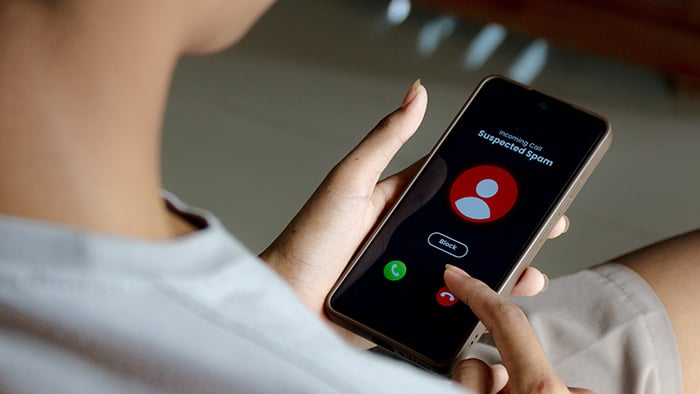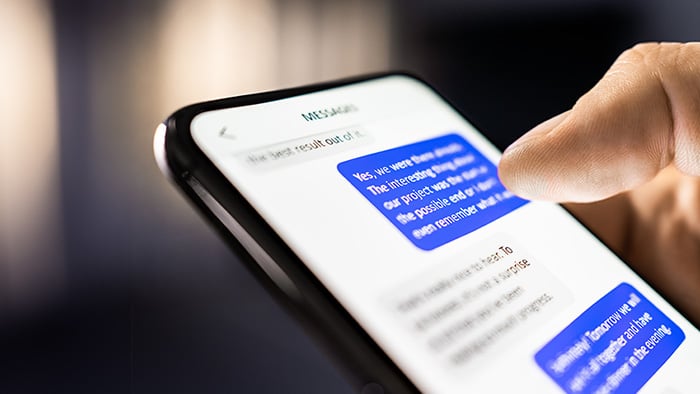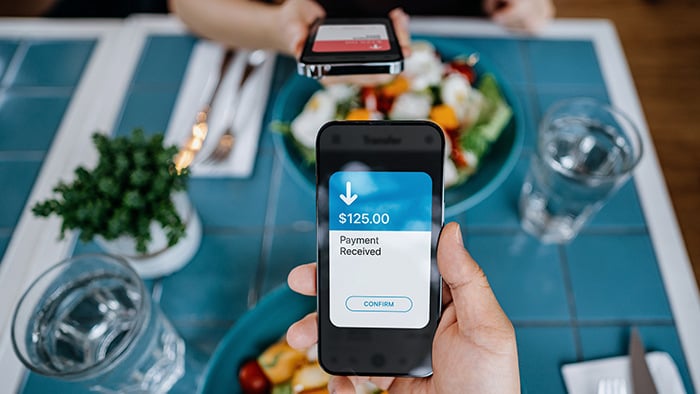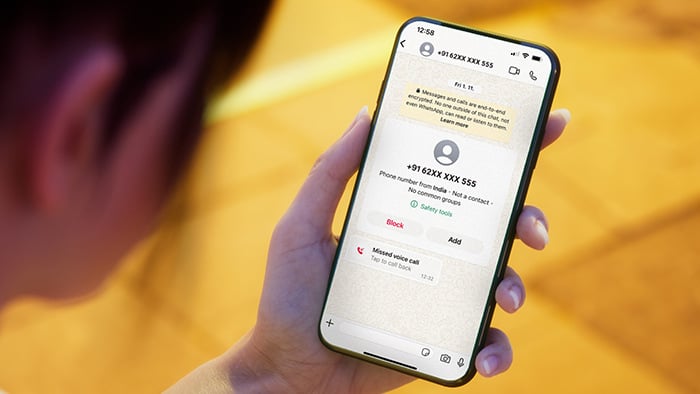Is Airbnb legit? What are the risks for guests and hosts?
Airbnb is a legitimate, reliable, and easy-to-use platform trusted by millions of users in over 200 countries worldwide. However, no industry or company is completely immune to scams, and with so many people on the platform, Airbnb fraud is more common than some travelers may think.
Research funded by ASIS International analyzed 127,183 Airbnb guest complaints and found that scams were the second-most common source of grievance (after customer service issues). Multiple listings scams topped the scam league, followed by properties not being as described, and Airbnb accounts being hacked. Fake listings and reviews were also a common concern.
For guests, Airbnb scams can mean lost money, ruined trips, or even dangerous encounters. There are plenty of Airbnb nightmares for hosts, too — from imaginary cockroach infestations as excuses for avoiding reimbursement, to expensive artwork “walking” off the walls. For honest hosts, bad reviews, property damage, and a tarnished reputation can be devastating.
And for both guests and hosts, cleverly disguised phishing attacks masquerading as messages from Airbnb can lead to account takeovers or, in extreme cases, identity theft.
My Airbnb scam story
I had just arrived at a luxury listing in the swanky heart of London’s Knightsbridge when the host sent a warning: The listing wasn’t “supported” by building management, so I was expected to sneak past the eagle-eyed receptionist every time or face instant eviction. I briefly bemoaned why schools don’t teach the commando crawl (all those years of softball and math. Why? WHY?).
The listing was an illegal sublet, and our host wasn’t even the owner. Thankfully, my children and I got lucky: management either took pity on us or begrudgingly believed my story that we were coming to stay with our good friend (whose name I couldn’t pronounce correctly).
Common Airbnb scams affecting guests
Not all hosts are angels. While many do their utmost to offer guests a positive experience, some are better at scamming than hospitality. Be aware of these common scams and learn how to identify them fast.
Fake listings
The classic. A wonderfully stylish beach house in a great location (Insta-worthy sunsets included free) at a price that looks like it must be a typo? You think you’ve hit the jackpot. Then you arrive, suitcase in hand, only to find a run-down apartment with a view of a parking lot, or an annoyed homeowner who’s never heard of Airbnb.
Faudsters post fake listings using doctored photos, stock images, or even AI-generated interiors to conjure up a picture-perfect paradise. Sometimes the address is made up entirely, other times it corresponds to a property that’s not actually for rent.

Look out for: Unusually low prices, inconsistent listing details, or requests to pay outside the platform.
Is the host legit? Do your homework.

See the host's profile and read reviews from previous guests.

Examine photos for signs of manipulation, such as distortions or unusual reflections. Learn to spot AI-generated images.

Use a reverse image search, like Google Image Search, to find out if the same image has been used elsewhere.

Check Google Street View to verify if the property exists at that location and what it looks like.
Bait-and-switch scams
Similarly to fake listings, the bait-and-switch starts with an irresistible offer — perfect location, beautiful photos, and a price that makes your bank account breathe a sigh of relief. You’re urged to “Book Now” before someone else does. Unfortunately, this amazing deal is just a digital worm on a hook…swim away.
If you don’t, here comes the switch. Just before check-in, the host informs you that the property is suddenly unavailable. It might be due to a “double booking” or a “plumbing emergency.” You’re offered a replacement property that’s less appealing and often miles from where you wanted to be.
Stuck without accommodation in a potentially-unfamiliar place, many guests panic and accept the downgrade, waiving their right to a refund.
Learn to spot these red flags:

Listings with unusually low prices.

Last-minute location changes due to unavoidable circumstances.

Pressure to accept the alternative accommodation.
However amazing the offer may be, think before you click. If the price seems unusual, compare prices with similar properties in the area. Thoroughly review the listing details and keep all communications through Airbnb. If you’re suspicious, report the situation to Airbnb immediately.
Doctored images
Has the palatial interior shrunk to the size of a loft? Is the “ocean view” actually a sliver of sea if you squint hard enough? Heavily edited images and deceptive descriptions can be the doorway to big disappointments. Hosts use them to hide dirt and damage, mislead guests, or even create fake listings.
Find out if your host is a master of illusion by searching for inconsistencies in lighting, shadows, and perspective. Examine edges for blurriness or unnatural sharpness, and look for repeated patterns or warping. Wide-angle lenses stretch spaces, making proportions appear “off.”
When in doubt, do this:

Run a reverse image search to check if the photos were stolen from stock sites or other listings.

Contact the host for extra pictures, such as a specific room layout or storage space.

Cross-check the property on other (reputable) rental platforms.
Hidden cameras
One of the most unsettling risks of short-term rentals is the possibility of hidden cameras. While Airbnb’s policies require hosts to disclose any recording devices (and strictly prohibit cameras in private spaces like bedrooms and bathrooms), unscrupulous hosts ignore these rules, turning a private stay into an invasion of privacy.
Spy cameras can be small enough to hide in smoke detectors, alarm clocks, air purifiers, or even decorative objects. Some devices emit faint lights when recording, so look out for these or the subtle glint of a lens.
Make it a habit to scan the room as soon as you arrive. Look for small holes and objects that seem out of place. Don your detective hat and shine your smartphone’s flashlight on surfaces to reveal hidden camera lenses.
Or fight technology with technology and use a radio frequency detector to scan for wireless signals emitted by hidden cameras.
If you do find a suspicious device, document it immediately. Contact Airbnb’s safety team, as Airbnb takes privacy violations seriously. Remove yourself from the property if necessary and demand a refund (all via the official channels, of course).
Airbnb scams affecting hosts
It’s not just guests who get scammed — hosts can be targets too. From fake damage claims to secret extra visitors, here’s how guest scams can unfold.
Overpayment or chargeback fraud
A sneaky “guest” books a property, requests to pay you directly via Venmo or PayPal, then claims to have accidentally paid too much — often with a fake or stolen card. They then ask the host to refund the difference. As the original payment was illegitimate, it bounces or is flagged as fraud, leaving the host with a double whammy: they’ve paid out of pocket and they’re left without the booking.
If you’re a host, follow these tips:

Never agree to send payments to unknown sources.

Don’t accept payments or agree to refunds outside the Airbnb platform.

Report any suspicious activities to Airbnb immediately.
Identity fraud and fake guests
Unscrupulous guests use stolen identities or phony profiles to bypass Airbnb’s verification checks and book stays. Once they’re in, they might trash the property, steal valuables, or disappear without paying for extra charges.
That’s why hosts must vet bookings carefully, communicate through the platform, and report anything suspicious before handing over the keys.
Overcrowding and unauthorized guests
Sometimes a booking for “two guests” turns into a party of ten. Overcrowding and unauthorised guests aren’t just an inconvenience; they can lead to property damage, safety risks, and trouble with neighbours or insurance claims. Scammers love to exploit lenient check-in processes, so it’s essential for hosts to establish clear house rules and remain vigilant.
Fictitious damages
“There were red wine stains all over the carpet!”. Some guests leave more than a mess — they make damaging, false accusations. In this scam, guests file claims for “damages” they insist existed before their stay, usually demanding refunds or threatening negative reviews.
For hosts, these damage claims can be costly, stressful, and difficult to disprove. This highlights the importance of detailed check-in documentation and time-stamped photos to protect against unscrupulous guests.
Airbnb scams affecting guests and hosts alike
Some scammers are equal opportunity offenders: they’ll target guests, hosts, or anyone else who’s distracted enough to click on a fake link in an unsolicited email. However you use the Airbnb platform, be on the lookout for phishing scams, off-platform payment proposals, and signs of account takeovers.
Phishing scams
You might think you’re communicating with the host from that cool condo in Cape Town, or get a two-month booking request during off-season…but who’s really behind it? Sometimes, scammers create fake emails that look deceptively like they’re from Airbnb. This tactic is called phishing or spoofing. Fraudulent emails often originate from domains that resemble legitimate ones, such as @bnb.com or @reservation-aribnb.com.
Click on a link, and you could stray onto a fake website that mimics Airbnb. Here you’ll be tricked into entering personal information, such as your address, password, or credit card details. This sensitive data could be used by a cybercriminal to take over your Airbnb account, trick you into sending money, or steal your identity.
It’s most likely a phishing email if you answer “yes” to any of these questions:

Is it from a public domain (e.g. @gmail.com)?

Is the domain slightly misspelled (e.g., amaz0n.com)?

Is the URL suspicious or packed with hyphens and symbols?

Are there spelling or grammatical errors?

Does it urge, or threaten, you to take action quickly?

Is there an unexpected attachment?

Does it ask for personal information, passwords, or money?

Is the message “out of the blue”?
Only interact with Airbnb through official channels. Instead of clicking on a link, navigate to the website yourself so you know where you’re landing. Hover over the sender’s email to reveal the full address. If you’re still not sure if a message is a phishing scam, Avast Free Antivirus can help. Its anti-scam features can help alert you to scammy messages, dangerous websites, and malicious links.
Off-platform payments
If anyone (either guest or host) suggests making or accepting payments outside of the Airbnb platform, hosts and guests should see red (get angry and consider it a giant red flag).
Scammy hosts often lure guests with promises of discounts or “no extra fees,” attempting to convince them to send money via wire transfers, payment apps, or other untraceable methods. Dishonest guests might claim it’s faster and easier for them on another platform.
But beware: Once you pay outside Airbnb, you lose the platform’s protections. No secure transactions. No fraud resolution. No help if things go wrong. Guests are no longer eligible for AirCover for guests, which provides support for rebooking or refunds. If hosts are the victims, they lose access to AirCover for hosts, which includes liability insurance and coverage for property damage.
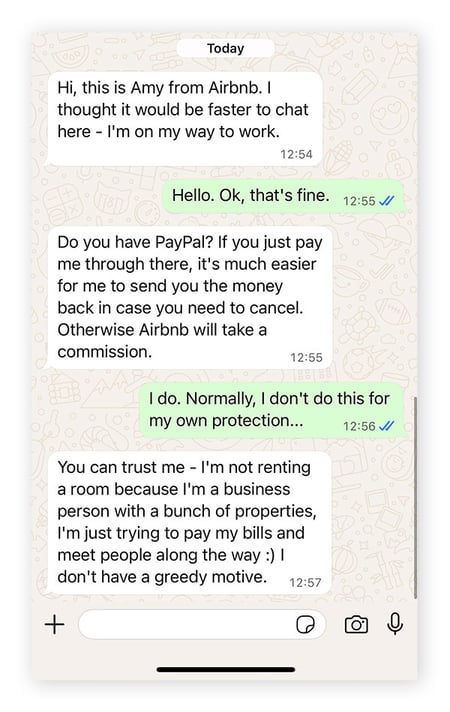
Account hacking
Cybercriminals hack into legitimate Airbnb host accounts for several reasons: They might add their own payout methods without the host being alerted, and reap the rewards of someone else’s rental. Or, they could access the personal details they need to impersonate you. As fictitious guests, they could make fraudulent bookings.
Account hacking is often accomplished via phishing campaigns, so be vigilant where you click and with whom you share your details. You can help prevent account takeovers with resilient online security: create strong, unique passwords for every account and manage them with a password manager.
Also enable two-factor authentication so the hacker is locked out even if they crack your password. And never log in to accounts on public Wi-Fi as you never know who’s waiting to intercept your communications. If you can’t resist, use a VPN to add a layer of encryption to your internet traffic.
If your account is compromised, contact Airbnb support immediately, change your password, and closely monitor any account activity.
How to help protect yourself from Airbnb scams
Staying in someone else’s home — or opening yours to strangers — can be an exciting opportunity, but it’s not without risks. Thankfully, falling for scams isn’t inevitable if you know how to protect yourself before, during, and after your booking.
Spot red flags in listings and communications
Whether you’re a guest or a host, knowing what to look for is essential for a successful stay. If you spot any of these bright red flags, scroll on past:

Incomplete profiles: Gaps in personal information might mean the guest or host is hiding something. Profiles without reviews could indicate a new member who needs extra vetting. Thoroughly review profiles and don’t hesitate to request additional information.

Lack of details or a poorly written listing: If a listing is vague or sloppily written, it might be a deliberate tactic. Scammers often keep descriptions brief to avoid inconsistencies or being detected. If a property lacks basic information (like clear check-in instructions, amenities, or location details), proceed with caution. Reputable hosts take pride in their listings and build trust from the start.

Too-good-to-be-true offers: A beachfront villa with flawless photos but no reviews? If a deal looks unrealistic, it’s probably just that: unreal. Scammers rely on urgency and peoples’ bargain-hunting instincts. Pause and investigate. Find the going rates for similar properties and try to find the rental on another site.

Poor, suspicious, or unpleasant communications: If responses by guests or hosts are vague, be cautious. They might be trying to conceal details or bypass policies. And rude or unreasonable behaviour in writing could be a sign of future trouble. Always stay within Airbnb's communication platform. It’s designed to protect both parties and is particularly helpful in the event of disputes.
Use Airbnb’s secure payment method
The entire Airbnb system is designed to prioritize security, simplicity, and transparency. Here’s how it works.
Airbnb requires that all payments be processed directly through their payments platform, which is designed to provide a secure and encrypted process. You have the freedom to choose from various payment methods, including major credit and debit cards, PayPal, Apple Pay, and Google Pay. Residents of the USA and Canada can also opt to pay in installments with Klarna.
For added security, you may be asked to confirm your payment method to verify that it’s really you making the reservation. And there’s more: Airbnb holds the guest’s payment for 24 hours after the scheduled check-in time, giving both parties time to address any issues.
If a host or guest asks to pay by wire transfer, cash, or any method outside Airbnb’s official system, it’s a flashing red light. Airbnb’s platform has been designed to help provide payment security, customer support, and protection against fraud. Once money leaves the platform, this safety net disappears.
Get antivirus software that detects phishing scams
It’s vital to protect yourself beyond the booking, because scams don’t always happen on Airbnb: some start in your inbox. Phishing emails (such as fake booking confirmations) with malicious links and attachments are popular tools for cybercriminals trying to steal your personal details and hard-earned cash. Because no one is immune to scams, Avast has created a free scam detector tool, so you can put the power of AI to work for you.
To help guard against online threats, block suspicious downloads, and help protect you from malware, install a reputable antivirus like Avast Free Antivirus and keep it updated.
What to do if you fall victim to an Airbnb scam
Even with the best precautions, scams can happen. It’s how you respond that makes the difference: The key is to act fast and always report an internet scam. Here’s some advice to help secure your data and money, so your booking doesn’t turn into a costly mistake.
Report the scam to Airbnb and local authorities
If you were scammed on Airbnb, warn the platform as soon as possible by following these steps:
-
Report suspicious listings to Airbnb. Notify Airbnb via the Airbnb resolution center. It’s also helpful to the entire Airbnb community if you report suspicious listings and report guest or host profiles so Airbnb can investigate. You can also notify Airbnb of phishing emails.
-
Save your evidence. Keep screenshots of messages, listings, and receipts and document all your communications within the app or platform. The more proof you have, the stronger your case.
-
Work with Airbnb support. Airbnb’s team can help mediate disputes and issue refunds. Be organised, prepared, and responsive.
-
Report serious cases to your local authorities. If you’re a victim of identity theft or harassment, your property has been willfully damaged, or high-value items have been stolen, file a police report with your local authorities.
My Airbnb scam story
I arrived at a filthy rental with tired twin toddlers. The bath had rings around it, and the kitchen sink was filled with dirty dishes. The host yelped that the cleaner had forgotten to come and promised to clean herself, but only much later that night. She was extremely kind and apologetic, pointing out that she was a mum herself and struggling.
Stressed, she asked if we could communicate via WhatsApp as it was easier. A 9:00 p.m. clean was too late for my small children, so I offered to clean myself and the host agreed to waive the cleaning fee after check-out.
Shortly after checkout, I received a formal notification from Airbnb stating that the host had accused me of leaving her home utterly filthy and damaging the bedding. She denied not having cleaned herself and demanded the cleaning fee plus additional compensation. The case went to Airbnb mediation, but I lost, as the host’s promises were verbal (and via WhatsApp). My photos of the dirty home were also dismissed, as the host had offered to return and clean. My takeaway? Trust no one. Don’t share contact details and never communicate privately.
Recover hacked accounts and stolen data
If your Airbnb account has been hacked or your personal data stolen, don’t panic, and go into damage-limitation mode to help prevent identity theft. Start by changing your Airbnb password. If any other accounts share the same login details, change these too (and brush up on how to create strong passwords). You can get help creating complex passwords with this free Avast password generator.
Then, enable two-factor authentication (2FA) for added security. Contact Airbnb’s customer support to report the breach and review any recent activity. And alert your bank or credit card provider to monitor for fraudulent charges. It’s also a good idea to deploy identity protection services.
Help protect yourself from Airbnb scams with Avast Free Antivirus
From phishing scams to account hacking, Avast provides advanced protection to keep your personal information safe. Get help with scam detection, plus real-time security features to ensure your vacation goes off without a hitch. Download Avast Free Antivirus today and enjoy peace of mind during your next Airbnb stay.
FAQs
How can I spot a fake Airbnb listing?
Take your time to look for verified profiles and read reviews. Avoid those with vague or poorly written descriptions. Trust your instincts and be cautious. If a listing seems too good to be true, scroll on. Verify the address and approximate location using online tools such as Google Maps. Examine photos for signs of manipulation and do a reverse image search to check if the property photos are genuine or stolen from other sites.
Incomplete host profiles and a lack of reviews are warning signs too. And if the host ever suggests communicating or making payments outside of the Airbnb platform, it's a major red flag.
What should I do if my Airbnb account is hacked?
If your account has been accessed without your permission, head straight to the Review your account page and follow the instructions. You’ll be asked to change your Airbnb password and review your last logins and activities, including which devices and locations you logged in from. Don’t forget to check for changes you didn’t make, such as your contact info, profile photos, listings, and payout methods.
Is it safe to pay outside the Airbnb platform?
No, never. Airbnb strictly prohibits requesting or sending payments outside its platform to ensure transparency and protect both guests and hosts. Treat any requests for off-platform payments with extreme caution and report the matter to Airbnb.








